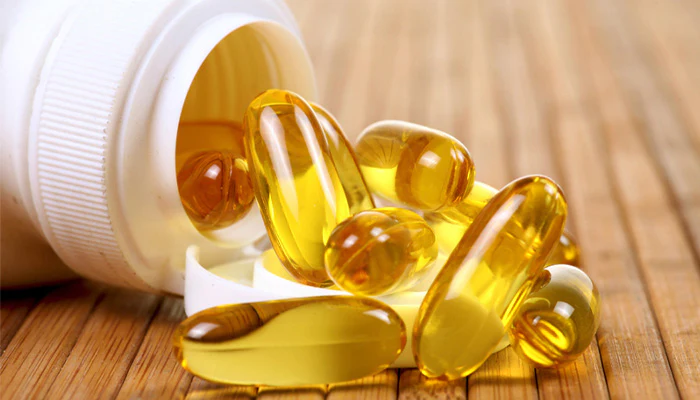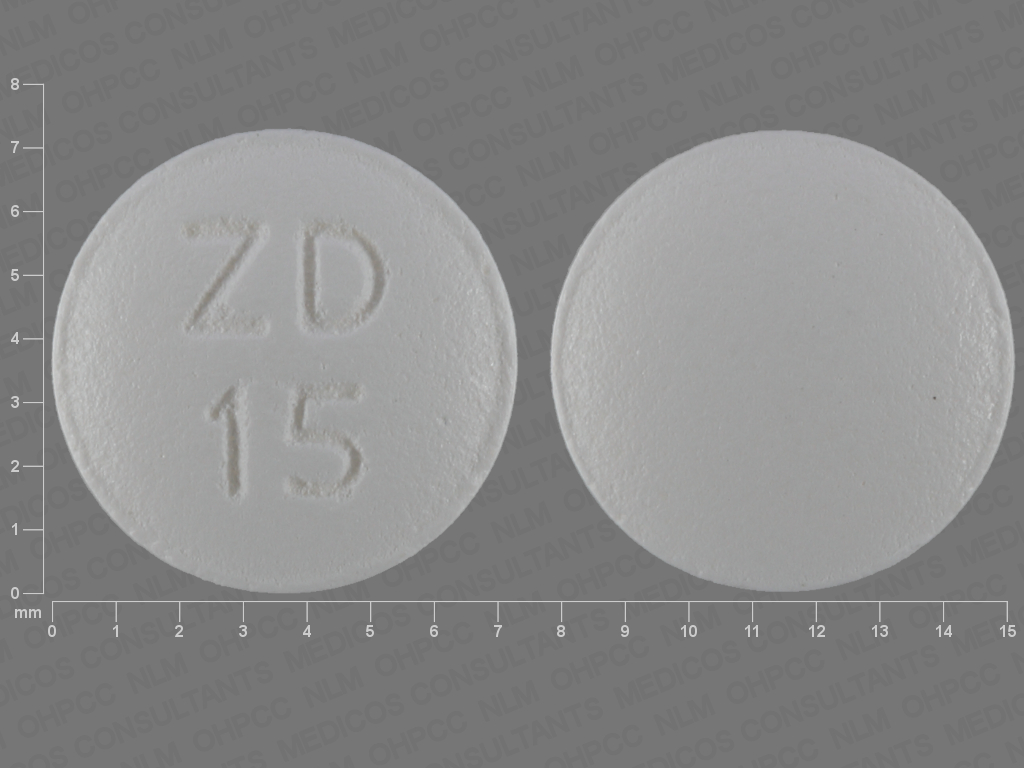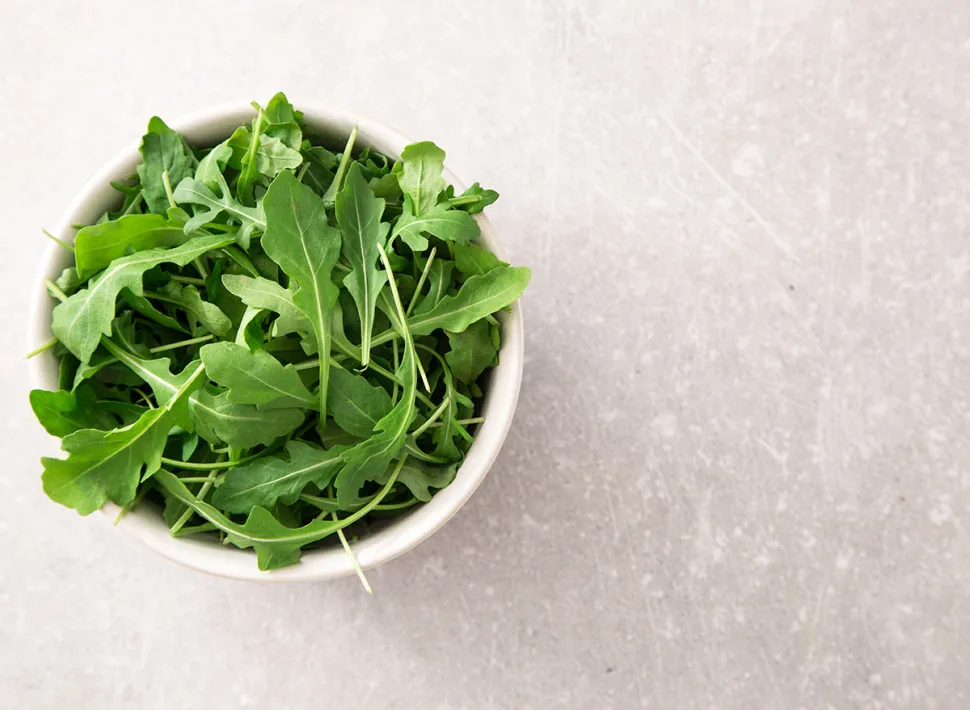Health
18 Benefits of omega-3 fatty acids and side effects

Discover the 18 shocking health benefits of omega-3 fatty acids and side effects.
Omega-3 acids are incredibly important, they have been proven to have many properties, uses, and benefits that help the body develop full health.
Few nutrients have been studied as extensively as omega-3 fatty acids.
This is a family of essential omega-3 acids that play an important role in the human body, we cannot produce them on our own, so we must remove them from the diet.
Omega-3 acids are polyunsaturated, which means that they have several double bonds in the chemical structure.
The three most important types are ALA (alpha-linolenic acid), DHA (docosahexaenoic acid), and EPA (eicosapentaenoic acid).
ALA is mainly found in plants, while DHA and EPA are mainly found in animal foods and algae.
Omega-3 acids are necessary for the optimal function of the human body, and they can also provide numerous powerful health benefits.
Common foods that are rich in omega-3 acids include fatty fish, fish oils, flax seeds, chia seeds, flaxseed oil, and walnuts, to name a few.
For people who do not consume much of these foods, an omega-3 supplement, such as fish oil, is often recommended.
Types of omega-3 acids
There are three main types of omega-3 fatty acids: ALA, DHA, and EPA.
1.- Alpha-linolenic acid (ALA)
• Alpha-linolenic acid (ALA) is the most common omega-3 fatty acid in the diet.
• It is 18 carbons long (3).
• It is not active in the human body and needs to be converted into active forms, EPA and DHA.
• However, this conversion process is inefficient. Only a small percentage of ALA is converted to the active forms (4, 5, 6).
• ALA is found in flaxseeds, flaxseed oil, canola oil, chia seeds, walnuts, hemp seeds, and soybeans, to name a few.
2.- Eicosapentaenoic acid (EPA)
• Eicosapentaenoic acid is a 20-carbon long omega-3 fatty acid.
• It is mainly found in animal products, such as fatty fish and fish oil.
• However, some microalgae also contain EPA.
• It has several functions in the human body. Some of this can be converted to DHA.
3.- Docosahexaenoic acid (DHA)
• Docosahexaenoic acid (DHA) is the most important omega-3 fatty acid in the human body. It is 22 carbons long.
• It is a key structural component of the brain, the retina of the eyes, and many important parts of the body.
• Like EPA, it is found primarily in animal products such as fatty fish and fish oil.
• Grass-fed meat, eggs, and dairy products also tend to contain significant amounts.
• Vegetarians and vegans often lack DHA and must take microalgae supplements, which contain DHA (8, 9).
12 Foods That Contain Omega-3 Acids
1.- Mackerel (4107 mg per serving)
2.- Salmon (4023 mg per serving)
3.- Cod liver oil (2664 mg per serving)
4.- Herring (3181 mg per serving)
5.- Oysters (565 mg per serving)
6.- Sardines (2205 mg per serving)
7.- Anchovies (951 mg per serving)
8.- Caviar (1086 mg per serving)
9.- Flaxseeds (2338 mg per serving)
10.-Chia seeds (4915 mg per serving)
11.- Walnuts (2542 mg per serving)
12.- Soy (1241 mg per serving)
18 healthy benefits of omega-3 acids
1.- Fight depression and anxiety
• Depression is one of the most common mental disorders in the world.
• Symptoms include sadness, lethargy, and a general loss of interest in life.
• Anxiety is also a very common disorder and is characterized by constant worry and nervousness.
• Interestingly, studies have found that people who regularly consume omega-3s are less likely to be depressed.
• Also, when people with depression or anxiety start taking omega-3 supplements, their symptoms improve.
• There are three types of omega-3 fatty acids: ALA, EPA, and DHA. Of the three, EPA appears to be the best for fighting depression.
• One study even found EPA to be as effective against depression as Procaz, an antidepressant drug.
• Omega-3 supplements can help prevent and treat depression and anxiety.
• EPA appears to be the most effective in fighting depression.
2.- Benefits of omega-3 for eyes
• DHA, a type of omega-3, is a major structural component of the brain and the retina of the eye.
• When you don’t get enough DHA, vision problems can arise.
• Interestingly, getting enough omega-3s has been linked to a lower risk of macular degeneration, one of the leading causes of permanent damage and blindness in the world.
3.- Benefits of omega-3 for brain
• Omega-3s May Promote Brain Health During Pregnancy and Early Life
• Omega-3s are crucial for brain growth and development in babies.
• DHA represents 40% of the polyunsaturated fatty acids in the brain and 60% in the retina of the eye.
• Therefore, it is not surprising that babies fed a formula fortified with DHA have better vision than babies fed a formula without it.
4.-Benefits of omega-3 during pregnancy
Getting enough omega-3s during pregnancy has been associated with numerous benefits for the child in terms of:
• Higher intelligence
• Better communication and social skills
• fewer behavior problems
• Decreased risk of developmental delay
• Decreased risk of ADHD, autism, and cerebral palsy
• Getting enough omega-3s during pregnancy and early life is crucial for a child’s development.
• The deficiency is related to low intelligence, vision problems, and an increased risk of various health problems.
5.- Fight heart disease
• Omega-3s May Improve Heart Disease Risk Factors
• Heart attacks and strokes are the leading causes of death in the world.
• Decades ago, researchers observed that communities that ate fish had very low rates of these diseases.
• This was later found to be partially due to omega-3 consumption.
• Since then, omega-3 fatty acids have been shown to have numerous benefits for heart health.
6.- Reduces the risk of various diseases
• Omega-3 acids can cause a significant reduction in triglycerides, generally in the 15-30% range.
• They can also lower blood pressure levels in people with high blood pressure.
• Omega-3s can raise HDL (the “good”) cholesterol levels.
• They can prevent platelets from clumping together.
• This helps prevent harmful blood clots from forming.
• Helps keep arteries smooth and free from damage, omega-3s help prevent plaque that can constrict and harden the arteries.
• They reduce the production of some substances released during the inflammatory response.
• For some people, omega-3s can also lower LDL (the “bad”) cholesterol.
7.- Reduces ADHD symptoms in children
• Attention deficit hyperactivity disorder (ADHD) is a behavioral disorder characterized by inattention, hyperactivity, and impulsivity.
• Several studies have found that children with ADHD have lower blood levels of omega-3 fatty acids, compared to their healthy peers.
• Additionally, numerous studies have found that omega-3 supplements can reduce ADHD symptoms.
• Omega-3s help improve inattention and the ability to complete tasks.
• They also decrease hyperactivity, impulsivity, restlessness, and aggression.
• Researchers recently evaluated the evidence behind different treatments for ADHD.
• They considered fish oil supplements to be one of the most promising treatments.
• Omega-3 supplements can reduce ADHD symptoms in children.
8.- Helps reduce the symptoms of metabolic syndrome
• Metabolic syndrome is a collection of conditions.
• It includes central obesity (belly fat), high blood pressure, insulin resistance, high triglycerides, and low HDL levels.
• It is a major public health problem, as it increases the risk of developing many other diseases. These include heart disease and diabetes.
• Omega-3 acids can reduce insulin resistance and inflammation, and improve risk factors for heart disease in people with metabolic syndrome.
9.- Fight diseases
• In autoimmune diseases, the immune system mistakes healthy cells for foreign cells and begins to attack them.
• Type 1 diabetes is a good example. In this disease, the immune system attacks the insulin-producing cells in the pancreas.
• Omega-3 acids can help fight some of these diseases, and they can be especially important during the first few years of life.
• Studies show that getting enough omega-3s during the first year of life is linked to a reduced risk of many autoimmune diseases, including type 1 diabetes, autoimmune diabetes in adults, and multiple sclerosis.
• Omega-3 acids have also been shown to help treat lupus, rheumatoid arthritis, ulcerative colitis, Crohn’s disease, and psoriasis.
10.- Improve mental disorders
• Omega-3s can improve mental disorders
• Low levels of omega-3s have been reported in people with psychiatric disorders.
• Studies have shown that omega-3 supplements can reduce the frequency of mood swings and relapses in people with schizophrenia and bipolar disorder.
• It can also decrease violent behavior.
12.- Benefits of omega-3 for cancer
• Cancer is one of the leading causes of death in the Western world, and omega-3 fatty acids have been said to reduce the risk of certain cancers.
• Interestingly, studies have shown that people who consume the most omega-3s have up to a 55% lower risk of colon cancer.
• Additionally, omega-3 consumption has been linked to a lower risk of prostate cancer in men and breast cancer in women. However, not all studies agree on this.
13.- Reduces asthma in children
• Omega-3s May Reduce Asthma in Children
• Asthma is a chronic lung disease with symptoms such as coughing, shortness of breath, and wheezing.
• Severe asthma attacks can be very dangerous.
• They are caused by inflammation and swelling in the airways of the lungs.
• Omega-3 intake has been associated with a lower risk of asthma in both children and young adults.
14.-Benefits of omega-3 for fatty liver
• Nonalcoholic fatty liver disease (NAFLD) is more common than you think.
• It has increased with the obesity epidemic and is now the most common cause of chronic liver disease in the Western world.
• Omega-3 fatty acid supplementation has been shown to reduce liver fat and inflammation in people with nonalcoholic fatty liver disease.
15.- Improve bone and joint health
• Osteoporosis and arthritis are two common disorders that affect the skeletal system.
• Studies indicate that omega-3s can improve bone strength by increasing the amount of calcium in the bones.
• This should lead to a reduced risk of osteoporosis.
• Omega-3 acids can also help with arthritis.
• Patients taking omega-3 acid supplements have reported reduced joint pain and increased grip strength.
16.- Relieves menstrual pain
• Period pain occurs in the lower abdomen and pelvis and often radiates to the lower back and thighs.
• It can have significant negative effects on a person’s quality of life.
• However, studies have repeatedly shown that women who consume the most omega-3s have milder menstrual pain.
• One study even found that an omega-3 acid supplement was more effective than ibuprofen in treating severe pain during menstruation.
17.- Benefits of omega-3 for sleep
• Good sleep is one of the foundations of optimal health.
• Studies show that lack of sleep is linked to many diseases, including obesity, diabetes, and depression.
• Low levels of omega-3 fatty acids are associated with sleep problems in children and obstructive sleep apnea in adults.
• Low levels of DHA have also been linked to lower levels of the hormone melatonin, which helps you fall asleep.
• Studies in children and adults have shown that supplementing with omega-3s increases the duration and quality of sleep.
18.- Benefits of omega-3 for skin
• Omega-3 fats are good for your skin.
• DHA is a structural component of the skin.
• It is responsible for the health of cell membranes, which make up a large part of the skin.
• A healthy cell membrane results in smooth, moist, supple, and wrinkle-free skin.
• Managing oil production in the skin.
• Managing hydration of the skin.
• Preventing hyperkeratinization of hair follicles (the small red bumps that are often seen on the upper arms).
• Preventing premature aging of the skin.
• Preventing acne.
• Excellent sunscreen.
Side effects of omega-3 acids
Omega 3 fatty acids can cause side effects, you must tell your doctor if any of these symptoms are severe or do not go away:
• burps
• acidity
• stomach pain or discomfort
• articulations pain
• vomiting
• constipation
• diarrhea
• sickness
• change in taste
Frequent questions
What are Omega-3 acids?
• Omega-3 fatty acids are very important facts that we must obtain from the diet.
• However, most people don’t know what they are.
• Omega-3 is short for omega-3 fatty acids.
• Omega-3 fatty acids are a family of important facts that we must obtain from the diet.
• The three main types are ALA, EPA, and DHA.
• The naming convention “omega” has to do with the placement of double bonds in the fatty acid chain.
Health
Serious side effects of topamax

Discover the serious side effects of Topamax
One of the medicines used to treat seizures in adults is Topamax, the active substance of which is topiramate.
The taking of this drug should always be done under medical prescription and with the corresponding prescription, as well as it is essential to follow the instructions regarding the dosage indicated by the specialist.
To learn more about Topamax along with its indications, use, and side effects, keep reading this article.
What is Topamax for
Topamax is a topiramate-based drug used to treat seizures in adults and children older than 2 years.
This anticonvulsant is administered in the event of partial seizures with or without secondary generalization or primary generalized tonic-clonic seizures and for the treatment of seizures associated with Lennox-Gastaut Syndrome.
It should be noted that this drug is also used to prevent migraine, although not as a treatment to alleviate them.
Warnings about Topamax
Taking Topamax should always be prescribed by a doctor and it will be necessary to notify your doctor beforehand in case of:
•glaucoma or other eye problems
•kidney disease, kidney stones, or dialysis
•breathing problems
•mood problems, depression, or suicidal thoughts or attempts
•liver disease
•osteoporosis, osteomalacia
•growth disorders
•be taking lithium
•suffer from diarrhea
•being lactose or sucrose intolerant
•It is also not recommended to take Topamax by pregnant or lactating women, as this drug can cause fetal harm or be excreted through breast milk.
Likewise, you should never drink alcohol while you are being treated with Topamax, as the side effects can be very serious.
Side effects of Topamax
Different side effects derived from taking Topamax have been described, so you should go or notify your doctor quickly if you feel any of the symptoms described below:
•Allergic reactions such as difficulty breathing, hives, swelling of the face, tongue, lips, or throat.
•Sudden changes in mood or behavior
•Anxiety and/or panic attacks
•Difficulty to sleep
•Irritation, agitation, and hyperactivity (mentally or physically)
•Depression or thoughts of killing yourself or hurting yourself
•Numbness or tingling in the extremities
•Headache, tiredness, dizziness, or drowsiness
•Changes in taste
•Nausea, diarrhea, indigestion, stomach pain, loss of appetite or weight
•Quick back and forth movements in your eyes.
Likewise, it should be noted that these are not only the adverse effects that Topamax can cause, so you should consult your doctor in case of any other type of alteration or symptom.
This article is merely informative, we do not have the power to prescribe any medical treatment or make any type of diagnosis.
We invite you to go to a doctor in the case of presenting any type of condition or discomfort.
Health
18 benefits of peanuts during pregnancy

Discover the 18 benefits of peanuts during pregnancy.
Peanuts during pregnancy can be very beneficial for future mothers and their fetuses. Peanuts are not only delicious, but they are also packed with vitamins, minerals, and other natural compounds that are great for pregnancy, which you can’t miss.
You must remember that pregnancy is a wonderful gift that only women can experience.
Being pregnant is like a noble job ordained directly by God for women, something that men could not do on their own. During pregnancy, the fetus magically grows inside the woman’s womb until the baby is born into the world.
To ensure the optimal development of the fetus before it is born, mothers must consume highly nutritious food because it is the only way the fetus can obtain food.
When it comes to the list of foods that mothers should consume during pregnancy, the list will be endless, but you could consider the benefits of peanuts during pregnancy, as peanuts
Peanut Nutritional Values
Peanuts are considered a healthy snack. However, this does not mean that you can consume without knowing the nutrients that peanuts contain.
By knowing the nutrients contained in peanuts, you can measure the number of peanuts needed during pregnancy, since surely the needs of each one are different from those of others.
Serving Size: 100 grams
Energy 567 kcal – 29%.
Carbohydrates 16.13 g – 12%.
Protein 25.8g – 46%.
Total fat 49.24 g – 165%.
Dietary fiber 8.5g – 22%.
Folate 240 µg – 60%.
Niacin 12mg – 75%.
Pantothenic acid 1,767 mg – 35%.
Pyridoxine 0.348 mg – 27%.
Riboflavin 0.135 mg – 10%.
Thiamine 0.64 mg – 53%.
Vitamin E 8.33mg – 55%.
Calcium 92mg – 9%.
Copper 1,144 mg – 127%.
Iron 4.58mg – 57%.
Magnesium 168mg – 42%.
Manganese 1,934 mg – 84%.
Phosphorus 76 mg – 54%.
Selenium 7.2 µg – 13%.
Zinc 3.27mg – 30%.
Sodium 18mg
Potassium 705mg – 15%.
From the table above, surely you have a general idea of the number of peanuts you could consume daily.
The key is to consume it in moderation, but sometimes it is necessary to ensure that the daily intake of a certain nutrient can be met to ensure optimal development of the fetus.
18 Benefits of Peanut During Pregnancy
Below are the benefits of peanuts during pregnancy that will give you reasons why you should add this healthy and delicious snack to your daily diet.
1.- Excellent source of folate
During pregnancy it is highly recommended to consume foods rich in folate and peanuts are one of them.
For every 100 grams of peanuts, approximately 60% of the daily intake of folate could be covered. It is common knowledge that folate is essential for fetal development, especially early in the trimester.
2.- Natural source of vegetable protein
Protein is essential for a mother during pregnancy and 100 grams of peanuts contains enough protein to meet the daily intake.
3.- Prevents birth defects
The birth defect can occur when the development of the fetus is disturbed or when there are insufficient nutrients to support development.
Peanuts are packed with vitamins and minerals that are great for pregnancy like folate to support optimal growth and minerals like iron and calcium to make sure there is enough red blood cell stock.
4.- Promotes optimal brain development
It is great food for the brain. During pregnancy, the fetus receives nourishment from the mother, and the folate consumed by the mother is not only beneficial to the mother, but also the developing brain of the fetus.
If you want to have a healthy and smart baby, eat peanuts during pregnancy.
5.- Source of calories for the mother
Each mother’s calorie needs may be different, but calories are essential for increased energy.
During pregnancy, a mother may suffer from fatigue and get tired easily. To help boost energy, peanuts can help restore it.
6.- Contains healthy fats
Not all fats are bad and peanuts do contain some healthy fats that are great for the mother during pregnancy.
Healthy fats are great for promoting a healthy heart, as mothers are at high risk for high blood pressure during pregnancy.
7.- Reduces the risk of allergic diseases
Recent studies have indicated that mothers who consume peanuts during pregnancy may reduce the risk of allergic diseases.
Not only allergic foods such as peanuts but also other types of allergies such as asthma.
8.- Helps control blood pressure
High blood pressure during pregnancy could be fatal for both the mother and the fetus. That is why it is very important to always keep your blood pressure under control.
To help control blood pressure, adding peanuts to your daily diet is highly recommended because basically, peanuts are great for your heart.
9.- Prevents gestational diabetes
On the table, it was seen that peanuts are quite rich in manganese. This mineral has an important role in regulating blood sugar levels during pregnancy to prevent gestational diabetes. Additionally, manganese also promotes optimal calcium absorption.
10.- Fight depression
During pregnancy, the mother is at risk of stress and depression. Well, some studies have shown that mothers who eat peanuts are much happier than those who don’t. So whenever she feels stressed, she snacks on peanuts.
11.- Decreases the risk of weight gain
Obesity during pregnancy is never good for both mother and baby. That’s why managing your weight is so important peanuts, while they do contain fat and calories, fats are healthy fats and packed with other nutrients that may help you control calories.
12.- Promotes skin health during pregnancy
One of the problems that every mother has to deal with during pregnancy is the skin problem.
Although they are prohibited from using cosmetics due to their chemical content, they could manage their skin problem just by consuming peanuts. Vitamin E and antioxidants will help prevent all skin conditions.
13.- Source of vitamin E
Vitamin E is the reason why a pregnant mother should look good. Vitamin E promotes skin health and makes sure that there is no such skin condition that the mother has to face.
Therefore, they could focus on her pregnancy instead of giving birth to a healthy baby.
14.- Great source of omega 3 fatty acids
If you think that fish is not your friend during pregnancy but you know that you need a great source of omega 3 fatty acids, you could replace fish with peanuts because they contain quite high healthy fats.
15.- Excellent source of vitamin B complex
In the table above you can see the high content of vitamin B found in peanuts per 100 grams. Most of them could satisfy almost half of the daily intake of vitamin B.
16.- Contains powerful antioxidants
Antioxidants are not only a solution against cancer, but during pregnancy, antioxidants could help the mother to maintain her immune system so that she doesn’t get sick easily.
17.- Rich in minerals
Looking for a quick fix to meet your daily mineral intake during pregnancy, peanuts are the answer.
You could see the nutritional table above about the value of minerals found in peanuts. 100 grams of peanuts are capable of satisfying half of the daily intake of minerals that your body needs.
18.- Super healthy sandwich
Well, during pregnancy you need to make sure that you consume enough food to ensure the optimal development of the fetus. Add peanuts to your daily diet because they are the super healthy snack that everyone loves.
Peanut Precautions
Peanuts may be packed with vitamins, minerals, and other natural compounds that are beneficial during pregnancy.
The list of benefits of peanuts during pregnancy mentioned above are scientifically proven facts. However, there are still some precautions about peanuts that you should be aware of as well.
Allergic reaction is one of the common things that can happen when peanuts are consumed. If a mother has ever been diagnosed as allergic to peanuts, she should not eat them.
Some studies also claim, that too many peanuts consumed during pregnancy could increase the risk of allergic reaction to the baby when they were born. Therefore, it is better to consume it in moderate amounts.
Peanut butter can be delicious, but it is recommended to consume it in its real form, as peanut butter has been through some processing and care must be taken with the amount of refined sugar in peanut butter.
Be careful with salty peanut snacks too because they can be delicious to eat during pregnancy, but salt contains sodium that could increase your blood pressure level. High blood pressure during pregnancy can be fatal.
Peanuts are healthy snacks that mothers can add to their daily diet, especially in the early stages of pregnancy when morning sickness is at its worst.
Just by eating peanuts as a snack, you could at least ensure that the baby inside your womb is still getting the nutrients that she needs to develop.
However, you need to keep in mind the precautions mentioned above if you want to reap the full benefits of peanuts during pregnancy and not the other way around.
Health
10 shocking health benefits of Arugula

Table of Contents
-

 Food1 year ago
Food1 year ago10 + Benefits of carrot juice and side effects
-

 Benefits4 months ago
Benefits4 months agoThe Benefits of Joining Gym Lumolog – Improve Your Fitness & Health
-

 Health1 year ago
Health1 year ago50 Super Healthy (And Very Often Cheap) Foods
-

 Health1 year ago
Health1 year ago5 Shocking health benefits of kinkeliba and side effects
-

 Food1 year ago
Food1 year ago8 shocking benefits of leek juice and side effects
-

 Health1 year ago
Health1 year agoBenefits of guava leaves Sensually
-

 Weight Loss1 year ago
Weight Loss1 year agoChaz Bono weight loss secret
-

 Health1 year ago
Health1 year ago13 shocking health benefits of Thai eggplant












